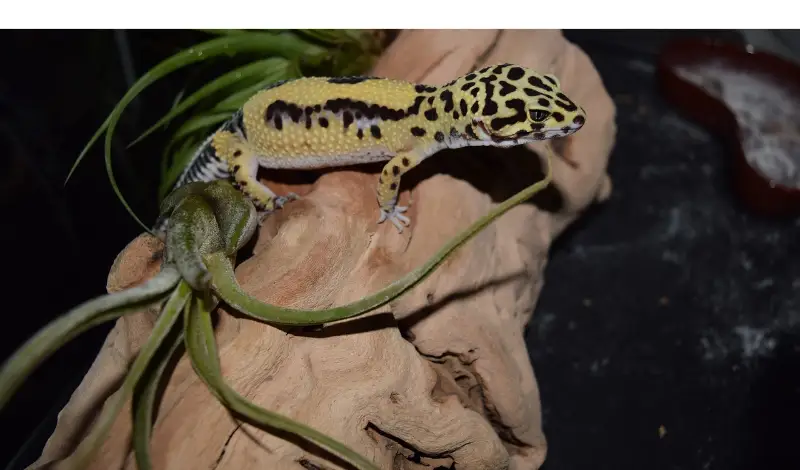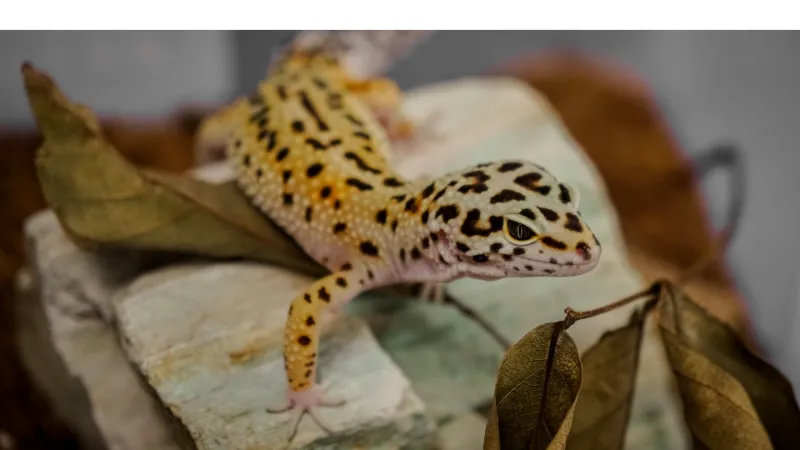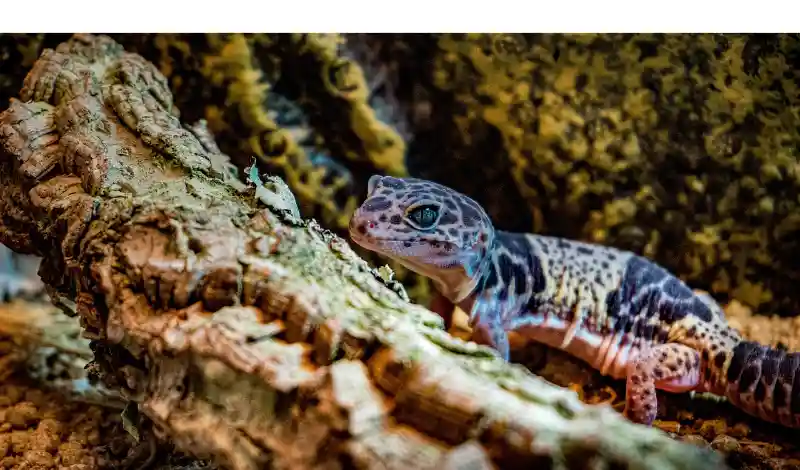As a proud leopard gecko owner, it’s natural to be concerned when your little buddy stops eating but continues to drink water.
Don’t fret! Let’s explore why my leopard gecko is not eating but drinking water and find out what you can do to help your scaly friend.
Fun Fact #1: Leopard geckos are originally from Afghanistan, Pakistan, and India deserts. They've evolved to survive in these harsh environments by storing water and fat in their tails!
Common Reasons Why Leopard Geckos Stop Eating
As you try to figure out why your leopard gecko is not eating but drinking water, consider these common reasons:
1. Stress and Environmental Factors
Leopard geckos are sensitive to their surroundings. Stress can result from changes in their environment, such as a new enclosure, improper temperature, or inadequate hiding spots.
Make sure you follow the recommended leopard gecko care for beginners guidelines to maintain an optimal habitat.
It’s essential to monitor your gecko’s lighting schedule and ensure they have a proper day-night cycle. Check out our articles on turning leopard gecko’s lights off at night and if leopard geckos need light at night for more information.
2. Impaction
Impaction occurs when a gecko ingests substrate or other indigestible materials, causing a blockage in their digestive system. To prevent impaction, provide a suitable substrate, like reptile carpet or paper towels, and avoid using loose substrates like sand.
3. Illness or Parasites
A sick leopard gecko may refuse to eat. Common illnesses include metabolic bone disease, caused by a lack of UVB light or calcium, and respiratory infections. Parasites are another possible reason. In such cases, consult a reptile veterinarian.
4. Shedding
Leopard geckos shed their skin as they grow. During this process, they might lose their appetite for a few days. You can help by maintaining the right humidity levels and providing a moist hide for your gecko.
5. Breeding Season
During the breeding season, a female leopard gecko may lose her appetite due to hormonal changes. This behavior is typically temporary and should resolve once the season ends.
Fun Fact #2: Unlike many other geckos, leopard geckos have eyelids, making them one of the few gecko species that can blink and sleep with their eyes closed.
Feeding Tips for Picky Leopard Geckos
If you’ve ruled out health issues and environmental factors, it’s time to try some feeding tips to get your picky leopard gecko back on track.
Offer a Varied Diet
Leopard geckos enjoy a varied diet of insects like mealworms, crickets, and waxworms. Offering different types of insects can help entice your gecko to eat.
Just remember not to overfeed them with fatty treats like waxworms, as they should be given in moderation.
Monitor Feeding Schedule
Young leopard geckos should be fed daily, while adults can be fed every other day. Consistency is key to maintaining a healthy appetite.
Keep in mind, “How long can a leopard gecko go without eating?” is a question that depends on factors such as age, overall health, and weight.
While a healthy adult gecko may survive without food for several weeks, you should still address any prolonged lack of appetite.
Check Food Size
The size of the food you offer is crucial. Feeding too large of insects can lead to impaction and discourage your gecko from eating.
As a rule of thumb, insects should be no larger than the space between your leopard gecko’s eyes.
Ensuring Proper Hydration
It’s great that your leopard gecko is still drinking water, as hydration is essential for their health. You might wonder, “How long can a leopard gecko go with just water?”
While water is vital, a lack of food can eventually cause health problems. Regularly clean and refill the water dish, and mist the enclosure to maintain appropriate humidity levels.
When to Consult a Veterinarian
If you’ve tried addressing the potential issues mentioned above and your leopard gecko still refuses to eat, it’s time to consult a veterinarian specializing in reptiles.
An expert can assess your gecko’s health, identify any underlying issues, and recommend appropriate treatment.
Possible signs that indicate it’s time to see a vet include:
- Prolonged lack of appetite (longer than two weeks)
- Significant weight loss or a visibly thinner tail
- Lethargy or unusual behavior
- Discharge from the eyes, nose, or mouth
- Difficulty breathing
Conclusion: Keeping Your Leopard Gecko Happy and Healthy
Figuring out why is my leopard gecko not eating but drinking water can be challenging, but understanding the possible reasons and taking the right steps can help your scaly friend regain their appetite.
By providing a stress-free environment, monitoring their health, and offering a varied diet, you can ensure your leopard gecko stays happy and healthy for years to come.
Remember, patience and consistency are essential when caring for these fascinating creatures. With a little bit of love and attention, your leopard gecko will thrive under your care.
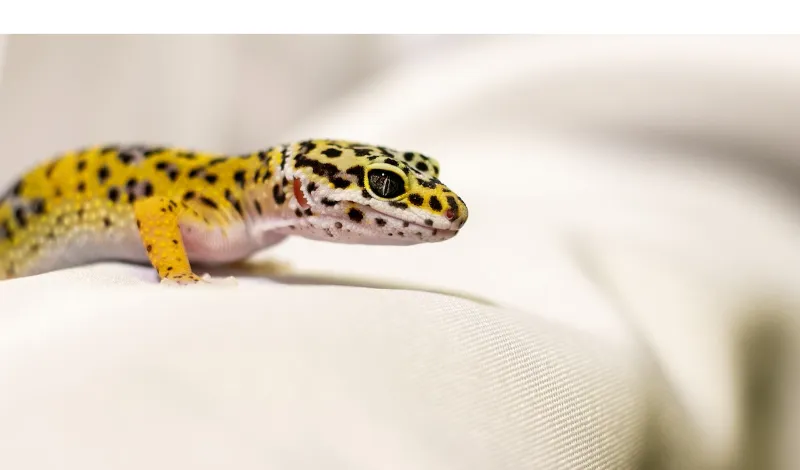
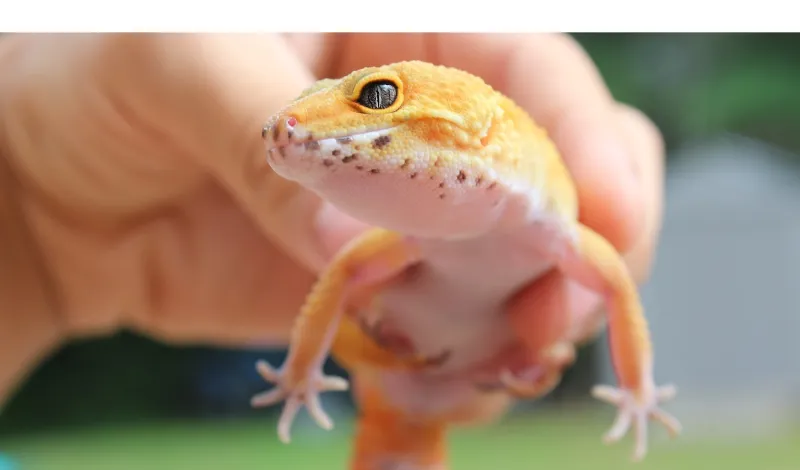
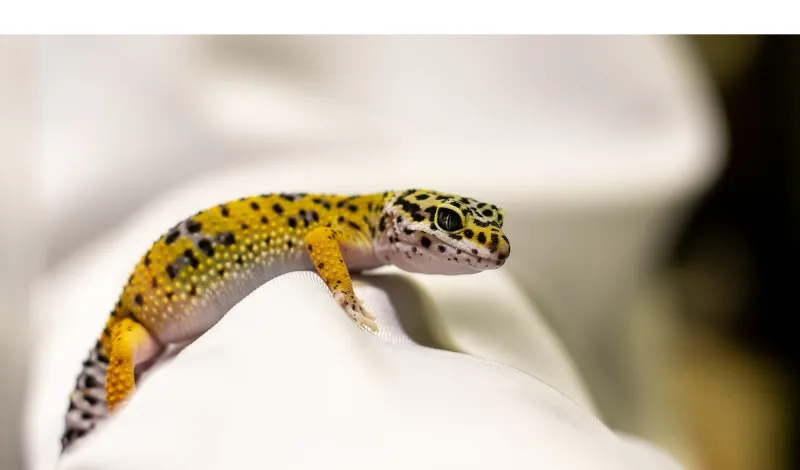
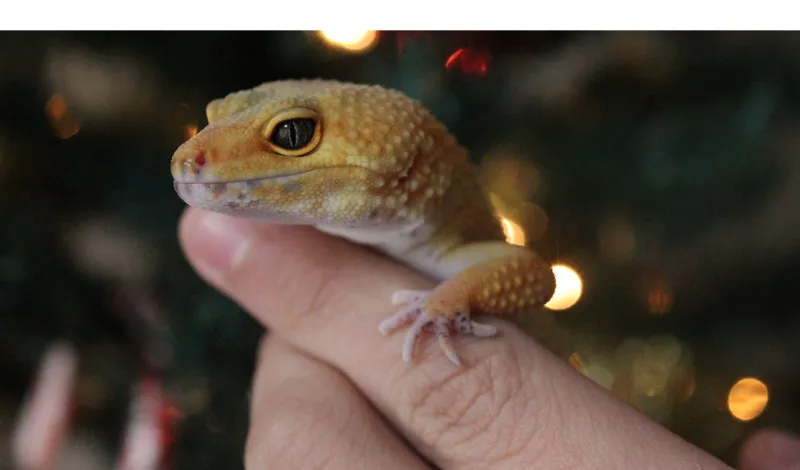
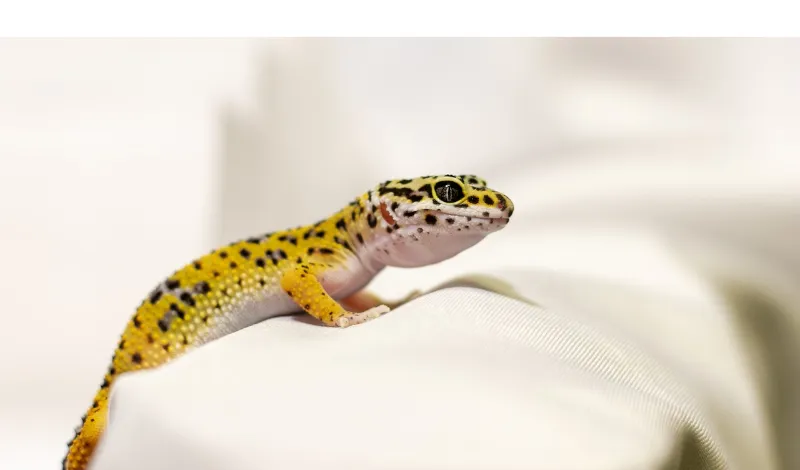
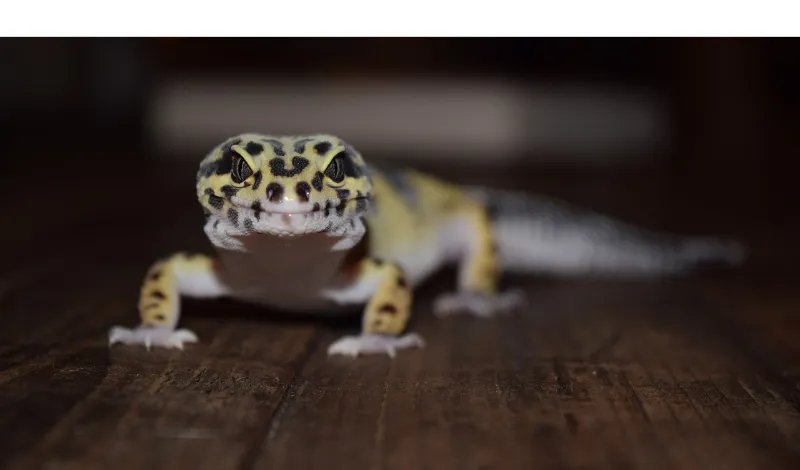
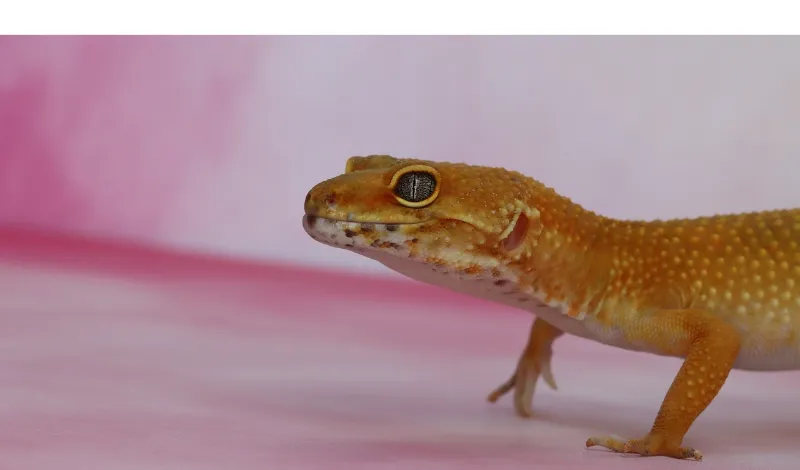
![turn-gecko-lights-off-at-night]](https://www.howtoanimal.com/wp-content/uploads/2023/05/Featured_Image_turn-gecko-lights-off-at-night.webp)
